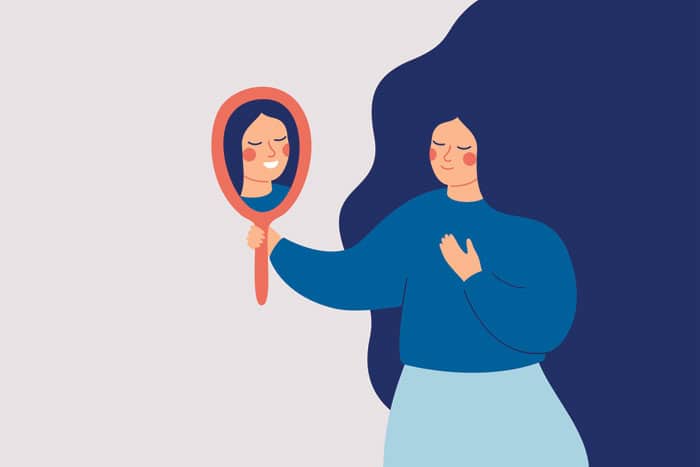 Ponomariova_Maria/Getty Images
Ponomariova_Maria/Getty Images I went to a local park the other day just to sit and think. But I was distracted by the sight of a half dozen young women dressed in formal gowns and corsages, makeup generously and professionally applied, standing around and taking endless photos of themselves.
Every woman was pretty, and a few were knock-outs. One or two of the gowns were cut somewhat traditionally, but the rest looked like they had been designed by Victoria’s Secret. These women literally had a lot of skin in the game and had invested mightily in trying to look as sexy as possible. I admit that I watched these women with fascination. Their gown choices and behavior revealed much more about them than simply a lot of personal real estate. It revealed the extent to which our society celebrates—even worships–the physical over the spiritual. This damages women severely. More and more, they struggle to feel confident about their looks.
Social media is one of the guiltiest culprits. Since its advent in 2012, rates of anxiety and depression among adolescent girls and young women have soared, largely because young females are exposed to thousands of digitally altered images of other females in fantasy versions of themselves. Newly released AI editing tools will now compound the problem throughout online platforms. How can one’s real self ever measure up?
It can’t. This explains why many cosmetic surgery centers are seeing double the number of young people (under 40) than ever before. Millennials and even Gen Z’ers are forking over big bucks for Botox, chemical peels, fillers, and lasers for non-surgical fat reduction. How many frown lines does a 28-year-old have? Are the lips of a 25-year-old already beginning to look wizened? Today’s youth are terrified of looking 30. This is a problem.
No amount of makeup, cosmetic fillers, or exposed skin in clingy or barely-there dresses will ever be able to fill the empty spaces where a sense of inner beauty and personal dignity should reside.
No amount of makeup, cosmetic fillers, or exposed skin in clingy or barely-there dresses will ever be able to fill the empty spaces where a sense of inner beauty and personal dignity should reside. That sense of internal value and beauty often springs from a belief in God and a secure upbringing in a loving home. But Millennials and Gen Z are also peeling away from religion in unprecedented numbers. Human nature abhors a vacuum, so in the absence of meaningful spirituality, it’s not surprising that people will seek fulfillment in the world of physicality, whose limits soon become painfully clear.
Judaism’s emphasis on tzniut can’t solve all these problems, but it can go a long way. The word literally translates as “modesty,” but this is a real disservice. The concept more accurately means discretion, not only in hemlines and necklines but also in speech and behavior. It also applies to men as much as to women. Since most women naturally want to be admired and desired for their beauty, it’s a precious gift to teach girls that their highest beauty is internal, and that the beauty of their bodies is not meant for crude public consumption. Embracing this truth is where true female empowerment lies. Embracing this truth can protect girls and women from secular society’s merciless competition to see who can look the youngest, the prettiest, the most alluring. In this way, adopting tzniut helps build self-esteem.
The beauties I saw at the park had been swept up by the tyranny of the physical, yet I also recognized that each woman had a distinctive style. Meira E. Schneider-Atik, a wardrobe organizer and jewelry designer who blogs about tzniut fashion on truetzniutistruebeauty.wordpress.com, maintains that personal style never needs to be sacrificed for tzniut. “Clothes aren’t just about covering your body and neither is tzniut. We can use our appearance, including our clothes and accessories to reflect who we really are. But this won’t happen if we focus too much on the physical.”
Meira encourages women to celebrate their unique body shape, face, and taste through dressing with individual style that doesn’t diminish their inherent dignity. “Every woman deserves to like what she sees in the mirror,” she affirms.
What a great lesson. It’s one that I hope begins to catch on in a society where women are ready to reclaim some dignity and real empowerment through timeless Jewish wisdom.
Judy Gruen’s most recent book is “The Skeptic and the Rabbi: Falling in Love With Faith.”























 More news and opinions than at a Shabbat dinner, right in your inbox.
More news and opinions than at a Shabbat dinner, right in your inbox.